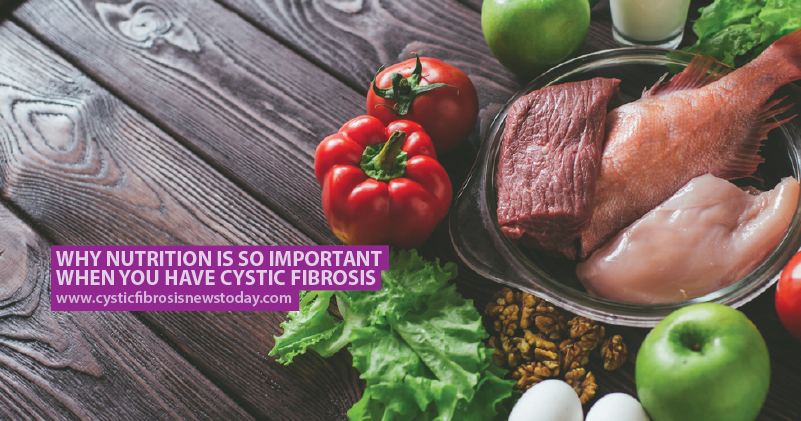Why Nutrition Is So Important When You Have Cystic Fibrosis
Written by |

Eating well is important for anyone who wants to stay healthy, but it’s especially true for those living with cystic fibrosis CF.
If you suffer from CF, you have a deficiency in your pancreas. Due to multiple other symptoms, this deficiency causes you to produce fewer of the enzymes which help you digest food and absorb nutrients and fat, so you’ll feel the adverse effects when these enzymes are limited. This deficiency can manifest in various different ways, including irregular stools, gas, and bloating, or your body may not get enough protein, fat, and calories.
MORE: Cystic fibrosis and the need for extra calories
This can make it difficult to maintain a healthy weight and to ensure you’re getting all the nutrients you need. If you’re worried about your diet, seek advice from your medical team who’ll be able to advise you about the necessary vitamins, minerals and enzymes your body needs.
It’s generally recommended that people living with CF take pancreatic enzymes with every meal (even snacks), which will help the body better absorb food. It’s also a good idea to fit vitamins like A, D, E, and K, along with extra calcium into their diets.
Eat when you feel hungry and if possible, split the three big meals into several smaller meals per day, along with a few nutritious snacks in between. In regards to the actual content of the meals, focus on extra calories and proteins. If you’re not lactose intolerant, dairy products should form a big part of your diet. Add cheese to regular foods, use whole milk or cream when cooking food or making drinks. Mashed potatoes are a good choice as well as casseroles. Vegetables, rice, pasta, tuna, shrimp, beef, chicken, fish and peanut butter are also a part of those much-needed calories and proteins.
MORE: Balancing the cystic fibrosis diet
Cystic Fibrosis News Today is strictly a news and information website about the disease. It does not provide medical advice, diagnosis or treatment. This content is not intended to be a substitute for professional medical advice, diagnosis, or treatment. Always seek the advice of your physician or other qualified health provider with any questions you may have regarding a medical condition. Never disregard professional medical advice or delay in seeking it because of something you have read on this website.






